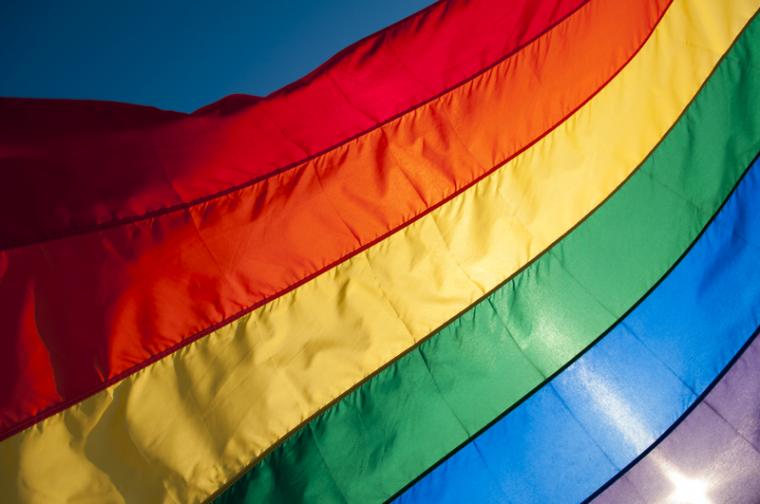
This article was originally published by USTA (the link is here).
Pride recently made a long-awaited return to the tennis courts of San Francisco. The United States Gay Open, one of the longest-running LGBTQ+ tennis tournaments in the world and the flagship tournament for the Gay and Lesbian Tennis Federation (GLTF), celebrated its 40th year and its first edition in three years over Memorial Day weekend.
On hiatus in 2020 and 2021 thanks to the COVID-19 pandemic, the event returned in a big way in 2022: 150 players from the Bay Area and five additional states, plus as far away as the Philippines, flocked to both the newly-renovated Goldman Tennis Center at Golden Gate Park and San Francisco State University to compete in singles and doubles in all-gender divisions in 18-and-over, 40-and-over, and 50-and-over age brackets.
Tournament director Mark Dinh lauded the event’s successful return, noting that its organizing committee overcame numerous challenges emerging from the pandemic to stage it, from court fees and court conditions at the university, to securing venues for social events and assuaging travel concerns of the competitors.
“By all accounts,” Dinh said, “it was an incredibly successful event with players enjoying competition, camaraderie and community over the four days.”
The United States Gay Open is one of the more than 70 tournaments that make up the Gay and Lesbian Tennis Alliance’s (GLTA) world tour, which has sanctioned international, amateur tennis events for the LGBTQ+ community since 1991. The GLTF’s origins date back a decade earlier, and the volunteer-run nonprofit now boasts 600-plus tennis-playing members of all skill levels in and around San Francisco.
“There [were] other tennis tournaments in the area that weekend, but I chose USGO to celebrate the safe and vibrant space that GLTF brings together,” said ‘B’ women’s singles champion Beth Cittenden. “Especially with some of the unimaginably difficult things happening in the world, I wanted to contribute to this constructive and awesome gathering. I know it's not everyone's priority to have diverse representation, both in life and in tennis. For me, it feels essential. When I don't cultivate diversity, my world gets smaller and more constricted, and I learn and grow less.
“Given the tennis community's classist, racist, homophobic history—and sometimes present, unfortunately—this issue of diverse representation is huge for the sport to keep living and growing. GLTF's motto, ‘Queer tennis is inclusive tennis,’ for me, is incredibly profound.”
“After two years of a pandemic, I wanted to enter USGO to enjoy both competitive and social tennis again,” added Gabriel Chen, the winner of the ‘B’ singles and doubles titles, the latter with partner Thep Chaturaphanich. Their winning partnership encapsulated the welcoming environment at the event; Chen, a familiar face to the USGO, started playing tennis in USTA Leagues at Golden Gate Park, while Chaturaphanich, playing the tournament for the first time, credits events and organizations like these with fostering broader growth for tennis.
Men’s Open singles champion Tim Noack, who played Division III college tennis at Washington University in St. Louis, agreed.
“Tennis has been a major part of my life since I was young,” Noack said. “It has always been an escape for me; an arena where once I step onto the court, I can focus on competing and forget about whatever may be going on in my life. When I was growing up, one thing [tennis] allowed me to momentarily escape was being gay because of the guilt, loneliness and otherness I felt for liking boys, which I thought was inherently wrong. In addition to being an escape, tennis is a passion and love of mine.”
He added: "While my prime tennis days may be behind me, playing in the USGO was a unique experience that I didn’t realize how much I would enjoy. I felt like I could fully be myself on and off the court and was part of a supportive, friendly community. Playing in the final surrounded by friends that were cheering me on was an amazing experience.”
Men’s Open doubles champion Kyle Wood said he “reveled in the feeling of being treated like a pro,” pointing to the fact that he and partner Alex Mckinzie played their final match with a certified USTA Official as the chair umpire and with ballpersons. But, he added, the most important takeaway from the tournament's return is that the tennis played there is in fact a metaphor for life.
“There are so many types of tennis players out there and everyone has their own unique style, [whether it’s] outfits or game play,” Wood said. “You never know what type of opponent you’ll face on the court, so you have to be ready to accept everyone’s game. Just as in life. As a sixth grade history teacher, I’m always promoting the message that everyone belongs. I have a Pride flag in my classroom and when kids ask me about it, my response is that it means everyone is welcome here, regardless of what you look like, where you are from, how you identify or what skills you have. I think the same message crosses over to tennis in that tennis is for everybody, too. No matter your age, ability or skill level, we all can play on center court. Tennis brings so many different types of people together for the love of the game.”
“Plus,” he concluded, “If you ‘love-love’ or ‘love-all,’ then you already know how to start a tennis match.”
All photos courtesy of Mark Dinh. Rebecca Bauer and Lani-Rae Green of the USTA NorCal section contributed to this story.

There are no comments
Please login to post comments